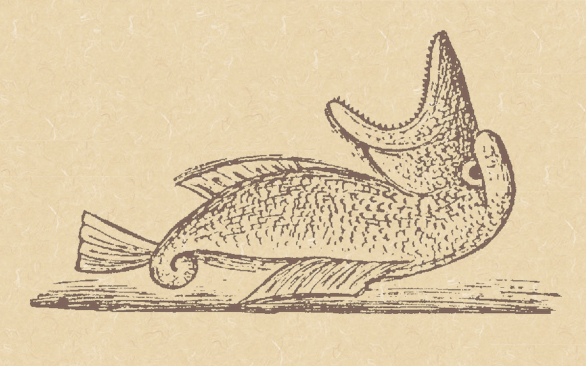Accepting Correction.
The Memorial of Saint Justin, Martyr.
Lessons from the feria of the Sixth Saturday of Easter, according to the ordinary form of the Roman Rite:
• Acts 18: 23-28.
• Psalm 47: 2-3, 8-10.
• John 16: 23-28.
|
… or, from the proper:
• I Corinthians 1: 18-25.
• Psalm 34: 2-9.
• Matthew 5: 13-19.
… or, any lessons from the common of Martyrs for One Martyr.
|
The Third Class Feast of Saint Angela Merici, Virgin.*
Lessons from the common "Diexísti …" of a Virgin, according to the extraordinary form of the Roman Rite:
• II Corinthians 10: 17-18; 11: 1-2.
• [The Gradual is omitted.]
• Matthew 25: 1-13.
FatherVenditti.com
|
 9:21 AM 6/1/2019 — Those of you who use daily missals to prepare for Holy Mass may have read the short blurb about today's saint, Saint Justin, an early Roman martyr who died under the reign of Marcus Aurelius. A convert to the faith, he was a layman and a philosopher, who wrote extensively in defense of the faith. What it may not tell you is that Justin, who died in the year 165, gave us one of the earliest descriptions of the Holy Sacrifice of the Mass as celebrated in Rome just after the time of the Apostles Peter and Paul. 9:21 AM 6/1/2019 — Those of you who use daily missals to prepare for Holy Mass may have read the short blurb about today's saint, Saint Justin, an early Roman martyr who died under the reign of Marcus Aurelius. A convert to the faith, he was a layman and a philosopher, who wrote extensively in defense of the faith. What it may not tell you is that Justin, who died in the year 165, gave us one of the earliest descriptions of the Holy Sacrifice of the Mass as celebrated in Rome just after the time of the Apostles Peter and Paul.
If you ever find it reproduced somewhere, it's worth reading because the Mass that Justin describes is essentially the Rite of Mass we are offering today, known as the Novus Ordo or the Mass of Saint Paul VI. It was in the vernacular which, in Rome at that time, was Latin. In fact, the only real differences between this Mass we are now offering and the Mass as described by Saint Justin is that, in Justin's time, the priest did not stand facing the people from the far side of the altar, but at the front of the altar with priest and people facing the same direction, toward the East and the Risen Christ, which I used to do all the time in my last assignment. The sign of peace was given at the offertory and not just before Holy Communion, based on our Blessed Lord’s own recommendation that we make peace with our adversaries before we bring our gifts to the alter.
Another important difference was that the collection was taken up at the end of the service, and not at the offertory. The early Christians made a qualitative distinction between the offerings of bread and wine to be transubstantiated into the Body and Blood of Christ, and the offering taken up for the support of the Church and for the poor. The one was a ritual offering made in preparation for a sacrifice, the other was just an offering made for the sake of Christian charity; and, the early Christians always made a strict distinction between the two, so as to avoid making the collection of money into something sacred and having something to do with the offering of the gifts of bread and wine which were to become the Body and Blood of Christ. So, our current practice of taking up a collection of money and then bringing up a basket of money along with the bread and wine and placing it next to the altar would have profoundly offended the early Christians.
But we have no collection today, so let's turn our attention instead to today’s first lesson from Saint Luke’s Acts of the Apostles, in which we are introduced to a man named—according to the translation in the Roman Missal—Apollos. I’m not sure why most modern translations add an “s” to the end of his name; Msgr. Knox and all other reputable translators call him by his proper name, as he’s clearly named after the Greek God, Apollo, which is his true name.
I don’t want to say too much about him today because he’s going to figure prominently in our future observations about the Blessed Apostle Paul’s activities; but, suffice it to say, he’s one of the “good guys.” He’s introduced to us as someone who’s preaching the baptism of John; but, when the disciples of our Lord pull him aside and inform him of further developments, there’s no argument: he immediately conforms to the new teaching he receives, and goes on to be commended for this continued ministry.
As I said, we’re going to meet Apollo again. For now, let’s consider his example. When we first meet him, he’s doing good work, but he’s just a little bit misinformed; but, when his errors are pointed out to him, he doesn’t get all defensive, but instead makes the adjustment immediately and without comment, and goes on to become a great apostle for our Lord.
In today’s Mass let us pray that we all might embrace Apollo’s spirit of humility and selfless service to our Blessed Lord.

* Inspired by the rule of St. Francis, Angela founded the Order of the Ursulines, uniting evangelical poverty to the merits of virginity. She died in 1540.
|

